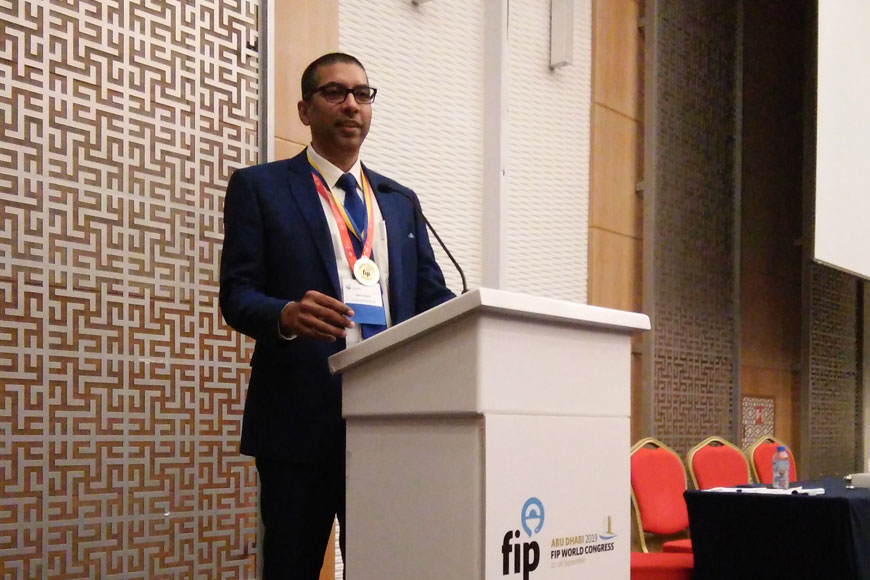
On September 24 and 25, 2019, Dr. Dixon Thomas, Associate Professor and Chair, Department of Pharmacy Practice at College of Pharmacy Gulf Medical University presented in 2 sessions at FIP (International Pharmaceutical Federation) World Congress Abu Dhabi 2019;
- Adapting to change – Implications on the profession of pharmacy
- Evolving from medicines seller to medicines expert (in Middle East and LMIC countries)
For hundreds of years, the Arab world has had a profound influence on the science and art of pharmacy. Pharmacy’s independence from medicine can be traced to the opening of the private apothecary in Baghdad circa AD 750. While charlatans, spice and perfume sellers, and drug dealers were common in the 8th century, the pharmacy was already beginning to emerge as a respected profession. Pharmacies are increasingly being recognized as a formal gate of entry to the healthcare system. Collaborative interaction between patients and pharmacists, with or without the provision of a therapeutic substance, confers undoubted benefits to the total healthcare system. More governments need to consider and promote the relevance and importance of self-care and acknowledge the role of pharmacists in delivering improved patient health outcomes through supporting patients in self-care activities. Pharmacy is a dynamic profession. However, in developing countries, the profession has remained stagnant, with a focus on dispensing and selling medicines, and as such risks the very essence of its existence. To change the image of the profession in developing countries there is a need to identify service opportunities that would perpetuate the continued relevance of the profession to health systems and communities. Even though new opportunities in the areas of public health, pharmaceutical supply chain management, pharmacovigilance, regulation, management, rational drug use and others are emerging in different forms and designs, pharmacists struggle to develop both their pharmacies as well as their healthcare systems. Changes in mindsets, perceptions, curricula and teaching methodologies are some of the requirements required to catalyze the process of modernizing the profession of pharmacy in developing countries. However, system changes are also necessary.

